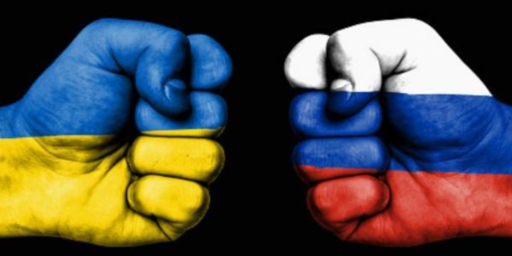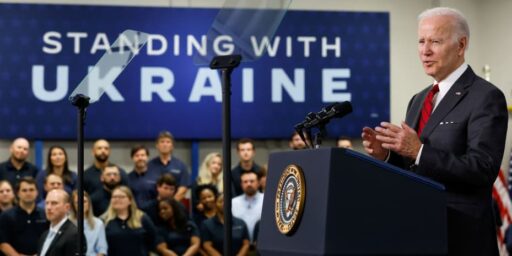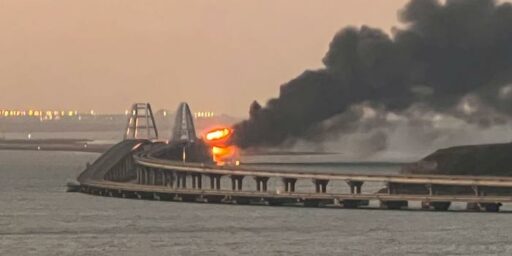More Information on the Crimean Referendum Ballot
Via the BBC: Crimea referendum: What does the ballot paper say?
A quick note: it should be understood that the option to revert to the Crimean Constitution of 1992 is not a vote for returning to the pre-crisis relationship to Ukraine, but is returning to a period in which Crimea was more autonomous. Indeed, as the BBC graphic notes, it is unclear as to which incarnation of the Constitution of 1992 is being referenced.
Note, for example, the following thumbnail sketch of Crimean constitutions from Gwendolyn Sasse (author of a book on Crimea):
Two unilateral Crimean constitutions in 1992, envisaging different degrees of autonomy, galvanized the regional Russian movement. The elected Crimean president and leader of the Russian movement, Yurii Meshkov, played a key role in setting the political agenda in Crimea and Ukraine as a whole. Crimean separatism peaked in 1994 and led to a brief moment when Kiev lost control over regional politics and security. This void, however, was not filled by Russia or Russia-supported actors. The ‘Autonomous Republic of Crimea’ was eventually embedded in the new Ukrainian state constitution of 1996, and its final outlook spelled out in the Crimean constitution of 1998.
In short, no one should think that Crimeans are being given the option of simply returning to the status quo ante. The basic outcome has been pre-decided, which is autonomy of some sort. To quote another BBC piece on these events:
Crimean parliament speaker Volodymyr Konstantynov said it was merely a matter of "legalising" opinion which was already known. "There will be no surprises. Do not even hope," he said on Ukrainian TV.






Very interesting!
When I lived in Munich in the late 60s and early 70s Bavaria was a quasi autonomous state. It was actually known as Freistaat Bayern, the free state of Bavaria.. It had it’s own border guards and national police force. If the German government agreed to a treaty it did not apply to Bavaria unless they signed it too. The political parties even had different names. Now I don’t know if this is still the case, a lot may have changed in 40+ years.